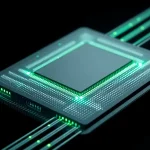Microsoft Loses Influence Over OpenAI's Upcoming Consumer Device

The technology sector is witnessing a paradigm shift with the emergence of innovative consumer devices that could redefine our interaction with technology. OpenAI's collaboration with renowned designer Jony Ive is particularly intriguing, as it aims to create a device that challenges the very foundation of smartphones. With recent developments marking a significant change in their partnership dynamics, the implications for both companies and the market at large are profound.
As we delve into the details, it's evident that OpenAI is gearing up to launch a product that could disrupt existing technology norms. The latest updates reveal that Microsoft has stepped back from influencing OpenAI's consumer device initiatives, indicating a new chapter in their relationship.
OpenAI and Microsoft redefine their partnership, paving the way for new innovations
In a groundbreaking move, Microsoft and OpenAI have renegotiated their partnership. This new agreement marks a pivotal moment for the future of artificial intelligence and consumer technology. Key aspects of the revised partnership include:
- OpenAI's journey toward achieving Artificial General Intelligence (AGI) will now be overseen by an independent panel of experts, ensuring unbiased evaluation.
- The formalization of Microsoft’s intellectual property (IP) claims related to OpenAI’s advancements, establishing clearer boundaries.
- OpenAI is now granted the freedom to develop products in collaboration with third parties, expanding its potential market reach.
- Microsoft retains the ability to independently pursue its own AGI initiatives, diversifying its strategic interests.
- Revenue sharing between OpenAI and Microsoft will continue until the AGI status is verified by the established panel.
- OpenAI has committed to purchasing Azure services worth an impressive $250 billion, while Microsoft forfeits its right of first refusal on OpenAI’s computing tenders.
Of particular note is a crucial element of the deal:
"Microsoft’s IP rights now exclude OpenAI’s consumer hardware."
This clause signifies that Microsoft will no longer have any control over OpenAI's upcoming consumer devices, including the highly anticipated project being developed alongside Jony Ive, the visionary behind Apple's iconic designs. It’s worth mentioning that OpenAI acquired Ive's AI device startup, io, for $6.4 billion in May 2025.
Recent reports indicate that OpenAI is actively assembling a talented team for this project. They have successfully recruited about two dozen former Apple employees, including:
- Matt Theobald, a skilled manufacturing design expert.
- Cyrus Daniel Irani, who previously led human interface design at Apple.
- Several hardware engineers and user interface specialists.
What we know about OpenAI's forthcoming consumer AI device
The upcoming consumer device from OpenAI is generating significant buzz, with expectations that it will fundamentally change how we interact with technology. Here are the key features we currently understand:
- The device is anticipated to be a screenless, pocket-sized gadget.
- It will incorporate various sensors, including cameras and microphones, to achieve contextual awareness.
- The device is designed to run OpenAI's specialized AI models locally, while also having access to cloud computing for more complex tasks.
- Users will be able to interact with the device in a manner reminiscent of smartphone communication.
- Importantly, the design will not conform to traditional wearable formats.
This ambitious project is poised to challenge the dominance of existing smartphones, potentially creating what some are dubbing the "Apple iPhone killer." The implications of such a device could be vast, reshaping consumer expectations and technology standards.
The significance of independence in innovation
The recent changes in the partnership between OpenAI and Microsoft underscore the critical importance of independence in tech innovation. By allowing OpenAI to steer its course without Microsoft’s influence, we may see:
- A surge of creativity and groundbreaking features that reflect OpenAI's vision.
- More agile development cycles, enabling quicker responses to market needs and consumer preferences.
- A robust exploration of new technologies that could redefine user experience.
As OpenAI continues to recruit top talent and leverage its strategic partnerships, the potential for developing a revolutionary consumer device becomes increasingly tangible.
The market reaction and future implications
The announcement of this renegotiation has sent ripples through the tech industry. Analysts are closely monitoring how this will affect not only OpenAI and Microsoft but also competitors and the broader consumer electronics landscape. Potential implications include:
- A shift in consumer loyalty as people become intrigued by alternatives to traditional smartphones.
- Increased pressure on established players like Apple and Samsung to innovate more rapidly.
- Greater focus on AI integration in consumer devices across the industry.
As we anticipate the release of OpenAI's new device, it will be interesting to see how these dynamics evolve, especially in light of the rapid advancements in artificial intelligence and consumer technology.
Insights from the tech community
Industry experts and tech enthusiasts are buzzing about the potential of OpenAI's upcoming device. Notably, a recent video titled "Consumer need isn't there for OpenAI hardware product, says..." discusses the challenges and opportunities that such innovations might face in the current market climate.
As this narrative unfolds, it’s clear that we are on the brink of significant technological advancements that could redefine our everyday lives and reshape the market landscape. The collaboration between OpenAI and Jony Ive, now free from Microsoft's oversight, promises to bring forth innovations that challenge existing paradigms and set new standards for consumer devices.




Leave a Reply